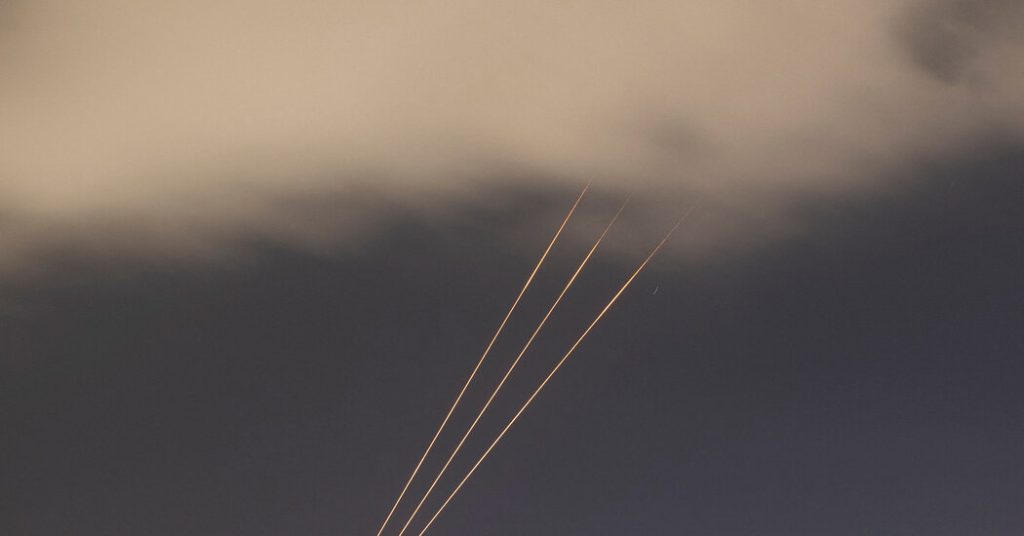Iran launched a missile attack on Israel, sending over 300 drones and missiles in retaliation for an alleged Israeli strike on an Iranian embassy. The attack caused minor damage and injuries in Israel, but most of the drones and missiles were intercepted by Israel, the U.S., and Jordan. This raised concerns about whether the conflict would return to its previous state of a long-running shadow war or escalate into a more dangerous phase. The attack, while new in some aspects, did not result in extensive casualties, increasing the likelihood of de-escalation between the two countries.
The air-raid sirens sounded across Israel, and loud booms were heard as explosions illuminated the night sky during the attack. The weapons used by Iran were more sophisticated than those used by other groups, reaching farther distances and traveling faster. Some Iranians celebrated the attack in Tehran, while others stockpiled fuel in anticipation of further developments. Israeli Prime Minister Benjamin Netanyahu expressed confidence in intercepting and blocking the attacks, while Hamas voiced support for Iran’s actions. Emergency diplomacy efforts were initiated, with President Biden expressing support for Israel and planned meetings with international leaders.
Some experts see the attack as performative and largely unsuccessful, while others consider it a significant escalation in Iran’s long shadow war against Israel. The lack of direct communication channels between the two countries raises concerns about potential military miscalculations and the need for Israel to respond to the attack. Iran’s support for proxy groups in the region, coupled with Israel’s reliance on espionage and assassinations, adds complexity to the conflict and the potential for further escalations. The attack brings Iran’s conflict with Israel out into the open and poses challenges for both countries moving forward.
The attack prompted emergency diplomacy efforts and plans for international meetings to address the situation. Israel’s war cabinet is set to meet to assess the situation and plan potential responses. The ongoing confrontation between Iran and Israel remains a source of concern, with both countries indicating a willingness to de-escalate while not ruling out further action. The lack of direct communication channels and the historical animosity between the two countries complicate efforts to resolve the conflict peacefully. The international community is closely monitoring the situation and engaging in diplomatic efforts to prevent further escalations.
In other news, a senior NPR editor accused the outlet of having a liberal bias, prompting a debate about media coverage and editorial perspectives. The argument highlights the challenges faced by media organizations in presenting diverse viewpoints and maintaining journalistic integrity. The debate reflects broader concerns about media bias and challenges in covering complex and contentious issues. Meanwhile, discussions on tax breaks, activism in Gaza, and ethical considerations in conservation raise important questions about societal values and priorities. The ongoing cultural and political discussions underscore the need for open dialogue and critical thinking in addressing pressing issues.


